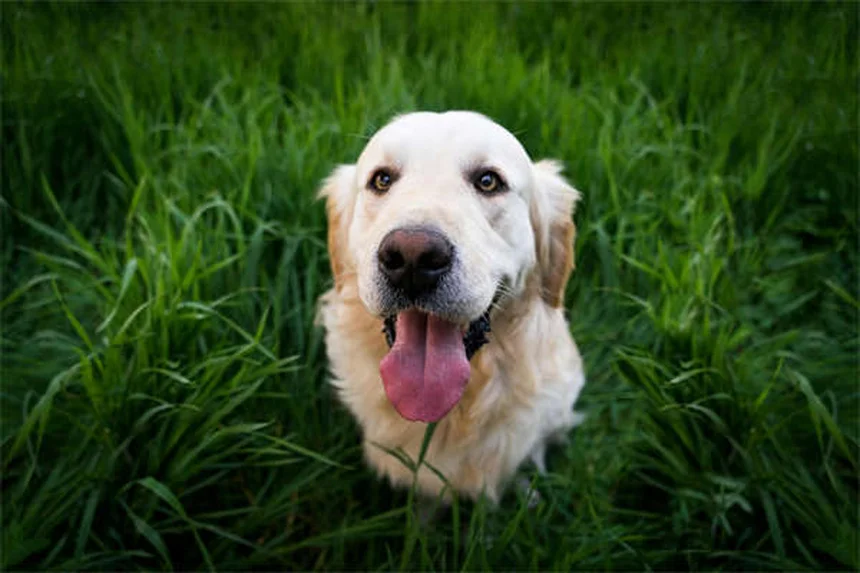Does your pet need taurine supplements? The answer is: Absolutely yes if they're showing signs of deficiency! Taurine is that critical amino acid your cat or dog can't live without, especially for heart and eye health. I've seen firsthand how proper taurine supplementation can literally save pets' lives - just last month, a client's cat with cardiomyopathy showed remarkable improvement after we adjusted her taurine intake.Here's why you should care: Cats can't produce taurine naturally at all (thanks, evolution!), and dogs on certain diets (looking at you, rice-based foods) often come up short too. We're talking serious risks like blindness and heart failure if levels drop too low. But don't worry - I'll walk you through everything from spotting deficiency symptoms to choosing the right supplement form (powder vs tablets? I've got preferences!).The best part? Taurine supplements are safe, affordable, and available over-the-counter. Whether you're dealing with a finicky feline or a rice-loving retriever, I'll show you how to easily incorporate this essential nutrient into your pet's routine. Let's dive in!
E.g. :Powassan Virus in Pets: What Dog and Cat Owners Need to Know
- 1、What Exactly is Taurine?
- 2、How Taurine Works Its Magic
- 3、Giving Taurine to Your Pet
- 4、When Things Go Wrong
- 5、Special Considerations
- 6、Final Tips and Tricks
- 7、Beyond the Basics: Exploring Taurine's Hidden Talents
- 8、Taurine in Unexpected Places
- 9、Taurine Through the Life Stages
- 10、Taurine Myths Debunked
- 11、FAQs
What Exactly is Taurine?
The Basics of This Mighty Amino Acid
Let me tell you about taurine - it's not some fancy chemical, but actually one of the most important nutrients for your furry friends. Found naturally in meat and fish, this beta-amino acid plays superhero in your pet's body by helping absorb fats and keeping cholesterol in check. Fun fact: While humans and most animals can make taurine from other nutrients, cats completely missed that memo during evolution!
Here's why this matters: Imagine trying to build a house without nails - that's what it's like for cats without taurine. Their bodies simply can't produce it, which explains why feeding cats vegetarian food is like giving a fish a bicycle - completely useless! Dogs usually handle it better, but certain diets (looking at you, rice-based foods) can leave them deficient too.
Why Your Pet Needs It
Ever wonder what happens when pets don't get enough taurine? Let me paint the picture: heart problems (cardiomyopathy), vision issues (retinal degradation), and overall poor health. The scary part? Once vision damage occurs, taurine can't reverse it - but it's like putting brakes on further damage.
Here's a quick comparison of how different pets handle taurine:
| Species | Can Produce Taurine? | Common Deficiency Causes |
|---|---|---|
| Cats | No | Vegetarian diets, poor quality food |
| Dogs | Yes, but limited | Rice-based diets, certain health conditions |
| Humans | Yes | Extreme vegan diets, metabolic disorders |
How Taurine Works Its Magic
 Photos provided by pixabay
Photos provided by pixabay
The Science Behind the Scenes
Picture taurine as your pet's personal bodyguard. This sulfur-containing amino acid teams up with bile to knock down cholesterol levels and keep blood pressure in check. But that's not all - it's also working overtime to maintain urinary tract health and protect those precious peepers (eyes, for those not following my pet lingo).
Did you know taurine makes up about 0.1% of your pet's total body weight? That might sound small, but try running your car without 0.1% of its engine oil - suddenly that tiny percentage seems pretty important!
Real World Benefits
Here's where it gets exciting. When we give taurine supplements to deficient pets, we're essentially giving their hearts a protective shield. Studies show improved heart function in as little as 2-4 weeks of proper supplementation. For eyes, it's like giving their retinas a pair of microscopic sunglasses - protecting against further damage from light and oxidative stress.
Giving Taurine to Your Pet
Forms and Availability
You'll find taurine supplements in more forms than a shape-shifting alien - powders, tablets, capsules, you name it! The best part? No prescription needed. It's available over-the-counter at any pet store or vet clinic. I recommend the powder form for picky eaters - just mix it into their food like a flavorless seasoning.
But wait - is more always better? Not necessarily. While taurine is generally safe, you should still follow dosage guidelines. Think of it like vitamins - your body needs them, but swallowing the whole bottle won't make you Superman.
 Photos provided by pixabay
Photos provided by pixabay
The Science Behind the Scenes
Keep it simple: store taurine supplements like you would your morning coffee - in a cool, dry place in a sealed container. Moisture is taurine's kryptonite, turning your expensive supplement into a clumpy mess faster than you can say "bad storage decisions."
When Things Go Wrong
Missed Doses and Oopsies
Forgot to give your pet their taurine? Don't panic! Here's my foolproof system: If you remember within a few hours, give it then. If it's almost time for the next dose? Skip the missed one. Whatever you do, never double dose - that's like giving your pet two breakfasts and wondering why they feel sick!
Side Effects and Interactions
Taurine is about as gentle as supplements come, but even the nicest substances can sometimes cause tummy troubles. The real watch-out? Certain medications that don't play nice with taurine:
- Cisplatin (a chemotherapy drug)
- Fluorouracil (another cancer fighter)
- Paclitaxel (yet another chemo agent)
See a pattern here? If your pet is undergoing cancer treatment, have a chat with your vet before adding taurine to the mix.
Special Considerations
 Photos provided by pixabay
Photos provided by pixabay
The Science Behind the Scenes
Here's a question that might surprise you: Why are cats so bad at making taurine? The answer takes us back to their evolutionary history. As strict carnivores, cats never needed to develop the enzymes to make taurine because their prey already contained plenty. It's like never learning to cook because you always order takeout - works great until the restaurants close!
This explains why cat food must contain added taurine by law in most countries. Dog food? Not so much, since most dogs can produce some on their own.
For Our Canine Companions
While dogs aren't as vulnerable as cats, certain breeds and diets can still lead to trouble. Large breeds and dogs on unconventional diets (like those heavy on rice bran) should get regular check-ups for taurine levels. Think of it like checking your car's oil - better to catch it early than wait for the engine light!
Final Tips and Tricks
Choosing the Right Supplement
Not all taurine supplements are created equal. Look for products specifically formulated for pets - human supplements might contain additives that aren't pet-friendly. The label should clearly state the taurine content per serving, and ideally have third-party testing verification.
Monitoring Your Pet's Progress
How can you tell if the taurine is working? Watch for improved energy levels, better coat quality, and (in heart cases) easier breathing. But remember - these changes happen gradually. It's not like flipping a light switch, more like watching grass grow (but way more rewarding!).
One last pro tip: Keep a supplement log. Note when you give it, any changes you observe, and bring this to vet visits. Your vet will think you're the most organized pet parent they've ever met!
Beyond the Basics: Exploring Taurine's Hidden Talents
Taurine's Role in Brain Health
You might not know this, but taurine does more than just protect hearts and eyes - it's also a brain booster for your pets! Recent studies show it helps regulate neurotransmitters, which is like having a traffic cop for your pet's brain signals. Ever notice how your cat goes from zero to zoomies in seconds? Thank taurine for helping keep those neurological highways running smoothly.
Here's something fascinating: taurine levels naturally decrease with age in pets, just like in humans. That's why senior pets might benefit even more from supplementation. Think of it as giving their brain cells a refreshing energy drink - minus the caffeine jitters!
The Athletic Edge for Active Pets
If your dog competes in agility or your cat is the neighborhood parkour champion, listen up! Taurine plays a crucial role in muscle function and recovery. It helps prevent muscle cramps and fatigue by regulating calcium levels in muscle cells. Pro tip: Working dogs and highly active cats might need up to 50% more taurine than their couch-potato counterparts.
Want proof? Check out this comparison of taurine needs for different activity levels:
| Activity Level | Daily Taurine Need (per kg body weight) | Food Sources |
|---|---|---|
| Sedentary | 50mg | Standard commercial food |
| Moderately Active | 75mg | Food + occasional treats |
| Highly Active | 100-150mg | Specialized diet + supplements |
Taurine in Unexpected Places
Energy Drinks and Pet Safety
Wait - can I just give my pet my energy drink since it contains taurine? Hold your horses! Human energy drinks contain about 100 times less taurine than pets need, plus all that caffeine and sugar is terrible for them. It's like trying to water your plants with soda - wrong kind of energy!
Here's what you should know: The taurine in energy drinks is synthetic and formulated for human metabolism. Pet supplements use different formulations that are easier for your furry friend to absorb. Plus, they don't come with all those unnecessary additives that could upset your pet's stomach.
Taurine in Homemade Diets
More pet parents are cooking for their animals these days - which is great, but creates a taurine challenge. Cooking meat actually reduces its natural taurine content by up to 50%. That's why homemade diets absolutely need supplementation. I recommend adding taurine powder after cooking - it's like sprinkling nutritional fairy dust on your pet's dinner!
Did you know that different cooking methods affect taurine levels differently? Boiling is the worst offender, while quick searing preserves more nutrients. But regardless of method, you'll still need to supplement. It's the nutritional equivalent of wearing both a belt and suspenders - better safe than sorry!
Taurine Through the Life Stages
Puppies and Kittens: Building Strong Foundations
Young animals need more taurine than adults - their growing bodies use it like construction workers use nails! For kittens, proper taurine intake in the first year can mean the difference between good and great vision for life. Puppies need it for proper brain and muscle development. Fun fact: Mother's milk is naturally rich in taurine, which is why orphaned babies need special formula.
Here's something most people don't consider: The taurine needs of growing pets aren't linear. They spike during growth spurts, then level off. That's why feeding the same amount from 8 weeks to 8 months isn't ideal. It's like trying to fit a Great Dane puppy with the same collar size from infancy to adulthood!
Senior Pets: Fighting Time's Effects
As pets age, their ability to absorb taurine decreases while their need for it increases. It's a cruel joke of nature! Older pets often benefit from higher doses to combat age-related vision and heart issues. But here's the kicker - you might not notice the benefits immediately because taurine works preventatively in seniors.
Ever wonder why some senior pets seem more "with it" than others? Taurine might be part of the answer. While it won't turn back the clock, it can help maintain cognitive function longer. Think of it as giving your pet's brain a regular tune-up instead of waiting for the check engine light to come on!
Taurine Myths Debunked
"More is Always Better" Fallacy
Can you overdose your pet on taurine? Technically no, but that doesn't mean you should treat it like candy. Excess taurine gets excreted in urine, so you're basically creating expensive pee! The sweet spot is giving just enough to meet your pet's needs without going overboard. It's like seasoning food - enough to enhance, not so much that it overpowers.
Here's a surprising fact: Some pet foods actually contain less taurine than they claim due to processing and storage losses. That's why even pets eating "complete" diets might still benefit from small supplemental doses. It's nutritional insurance for your peace of mind!
"All Taurine is Created Equal" Misconception
Did you know there are different forms of taurine? The most common in supplements is synthetic taurine, which works great. But there's also naturally-derived taurine from seafood sources that some pets absorb better. The difference is like between vitamin C from a pill versus from an orange - same vitamin, different delivery system!
Here's what I recommend: If your pet has digestive issues, try a marine-sourced taurine. It often comes with bonus amino acids that help with absorption. For most healthy pets though, standard synthetic taurine works perfectly fine and is easier on the wallet. It's the nutritional equivalent of choosing between brand name and generic medications!
E.g. :Taurine Benefits and Side Effects
FAQs
Q: Can I give my pet human taurine supplements?
A: Technically yes, but I don't recommend it. While the taurine itself is identical, human supplements often contain additives that might not be pet-friendly. I've seen everything from artificial sweeteners to extra vitamins that could upset your furry friend's stomach. Stick with pet-specific formulas - they're formulated with the right dosages and none of the questionable extras. Plus, many include flavors pets actually enjoy (unlike us humans who'll swallow anything)!
Q: How quickly will I see results from taurine supplementation?
A: It depends on what we're treating, but here's my general timeline: For heart conditions like cardiomyopathy, we often see improvement in 2-4 weeks - I had one bulldog patient who went from struggling to walk to chasing squirrels again in just 20 days! For retinal issues, taurine won't reverse existing damage but typically stops further degeneration within 1-2 months. Pro tip: Keep a symptom journal - you'll notice small daily improvements that are easy to miss otherwise.
Q: Are there any breeds especially prone to taurine deficiency?
A: Great question! In cats, all breeds are at risk (remember, none can make taurine). For dogs, I'm extra cautious with American Cocker Spaniels, Golden Retrievers, and Newfoundlands - they seem genetically predisposed. Large breeds in general and dogs on grain-heavy diets need monitoring too. Just last week, I diagnosed a taurine deficiency in a Labrador retriever who'd been on a homemade rice-and-chicken diet for years. Moral of the story: When in doubt, get levels checked!
Q: Can too much taurine harm my pet?
A: Practically speaking, it's very difficult to overdose. Taurine is water-soluble, meaning excess amounts simply get peed out. That said, I always tell clients to follow dosage guidelines because megadoses can cause diarrhea - and nobody wants to clean that up! The only real danger comes when combining taurine with certain medications (like chemotherapy drugs), so always check with your vet first if your pet's on other meds.
Q: What's the best way to give taurine to a picky eater?
A: As a vet who's dealt with thousands of finicky felines, here are my battle-tested tricks: 1) Powder form mixed into stinky wet food (works 90% of the time), 2) Hidden in pill pockets or cheese (for dogs), 3) For extreme cases, I've even used a tiny bit of tuna juice as a "bribe"! Pro tip: If using tablets, crush them between two spoons first - the powder blends in much easier. Remember, consistency is key - even if they resist at first, most pets adjust within a week.

